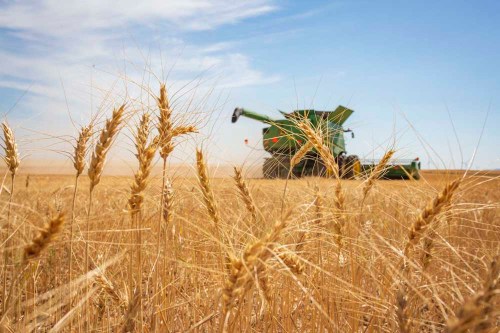Oregon considers drought exemption to ‘use it or lose it’ water law
Published 9:00 am Monday, February 6, 2023
SALEM — Oregon farmers who have to forgo irrigation due to drought won’t endanger their water rights under legislation before the state Senate.
Opponents, however, claim it is overly broad and unnecessary.
Irrigators who don’t use their water right at least once every five years stand to lose it under the state’s current “use it or lose it” forfeiture law.
Senate Bill 718 would create an exemption to the statute if the governor declares that a county is suffering from extreme drought or likely to experience one.
During such a declaration, growers could refrain from irrigating that season and not have it count toward the five-year rule for water rights cancellation.
“In the case of a drought, you don’t necessarily have a choice,” said Sen. Fred Girod, R-Stayton, the bill’s chief sponsor, during a recent legislative hearing.
Water rights greatly enhance a property’s worth and SB 718 would protect farmers from risking that value in circumstances outside their control, Girod said.
Significant amounts of farmland have been affected by drought in recent years, often reducing the allocation of water available to growers, said Sen. Lynn Findley, R-Vale, the bill’s co-sponsor.
Faced with insufficient water to irrigate all their land, farmers may decided to focus what they have available on particular fields while leaving others idle, he said.
Under the current law, leaving those tracts un-irrigated would threaten the water rights tied to those parcels, Findley said.
Protections already exist for farmers who are “regulated off” their irrigation source by the state’s Water Resources Department, said April Snell, executive director of the Oregon Water Resources Congress, which represents irrigation districts.
However, senior water rights holders can still expose themselves to cancellation if they’re technically allowed to irrigate but voluntarily decide against it due to water scarcity, Snell said.
If SB 718 becomes law, growers wouldn’t be driven by fear to irrigate in ways that aren’t useful, simply to avoid endangering their water rights, she said.
“No area is immune from drought and this would be a good tool to help us be flexible and stretch every last drop as far as we can,” Snell said.
WaterWatch of Oregon, an environmental nonprofit, opposes the bill for offering “blanket protection” to every irrigator in a county where drought has been declared, even if they personally still have access to water.
Farmers who truly lack irrigation water during a drought can already rebut the “presumption of forfeiture” during the water rights cancellation process, said Kimberley Priestley, the group’s senior policy analyst, in submitted testimony.
With how frequent droughts have become, SB 718 could shield water rights even if farmers don’t use them in the long term, she said.
Though the state’s Water Resources Department hasn’t taken a position on SB 718. The agency said the bill’s language appears to restart the five-year clock with each drought declaration.
In effect, that would apply to all the water rights within a county, even if they “had not been used for decades and had no infrastructure or intent to do so,” OWRD said in submitted testimony.
For example, Lake County has received drought declarations 12 times over the past couple of decades, the agency said. “If this bill were in effect, any water rights within the area would not be subject to forfeiture between approximately 1997 through 2027, and there would not need to be any water use under the right during that time.”










